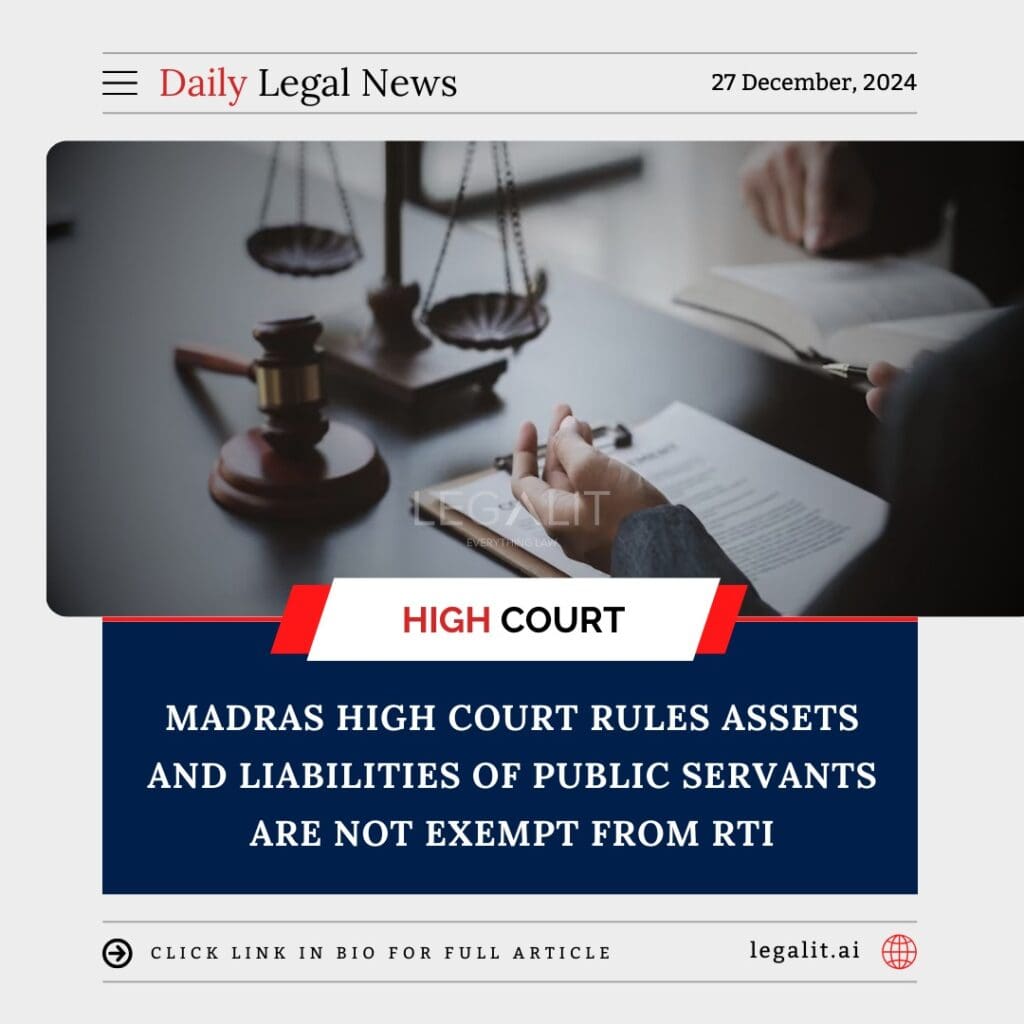
The Madras High Court has held that the assets and liabilities of public servants are not exempt from disclosure under the Right to Information (RTI) Act, 2005. The court emphasized that transparency in the financial declarations of public officials is crucial for ensuring accountability and maintaining public trust.
Background
The case arose from a petition challenging the denial of information regarding the assets and liabilities of a public servant under the RTI Act. The petitioner argued that such disclosures are essential to monitor the integrity of public officials and to deter corruption.
In response, the public authority cited Section 8(1)(j) of the RTI Act, which exempts personal information from disclosure if it does not relate to public activity or public interest. The authority claimed that information regarding assets and liabilities fell under this category and, therefore, could not be disclosed.
Court’s Observations
Public Accountability and Transparency
The Madras High Court underscored the importance of transparency in the functioning of public officials. The court stated that the disclosure of assets and liabilities is directly connected to public accountability and is a matter of public interest.
Not Covered Under Personal Information Exemption
The court clarified that the exemption under Section 8(1)(j) is not absolute and must be weighed against the larger public interest. It ruled that the financial declarations of public servants pertain to their official duties and cannot be categorized as strictly personal information.
Importance of Monitoring Corruption
The bench emphasized that allowing public access to such information serves as a deterrent against corruption. It noted that the requirement for public servants to declare their assets and liabilities is mandated by various laws and is intended to promote transparency in governance.
Implications
Strengthening RTI as a Tool for Accountability
This judgment reinforces the RTI Act as a vital instrument for holding public officials accountable. By mandating the disclosure of assets and liabilities, the court has affirmed the public’s right to access information that ensures the integrity of governance.
Implications for Public Officials
The ruling sends a strong message to public servants about the need for transparency in their financial dealings. It underscores the importance of adhering to statutory requirements regarding the declaration of assets and liabilities.
Deterrent Against Corruption
By allowing citizens to scrutinize the financial declarations of public officials, the judgment acts as a significant deterrent against corrupt practices. It empowers the public to question any disproportionate accumulation of wealth by those in positions of power.
Conclusion
The Madras High Court’s decision that the assets and liabilities of public servants are not exempt under the RTI Act marks a significant step toward enhancing transparency and accountability in public administration. The ruling reaffirms the RTI Act’s role as a cornerstone of democratic governance and highlights the need for public servants to maintain the highest standards of integrity in their financial disclosures.